The Benefits of Holistic Health and Wellness Practices on Alcoholism and Drug Addiction Recovery
By Adam Douglas Heyes, M.A.
Edited by Jonathan Beazley, CADC-CAS, RAS II
What Is Holistic Health and Wellness?
“Health is a state of complete physical, mental and social well-being and not merely the absence of disease or infirmity.” ~World Health Organization
What does it mean to truly heal? With addiction, recovery is often equated with prolonged abstinence from alcohol or the addict’s drug of choice (DOC). But true recovery, true healing, involves much more than just the cessation of drinking or using. It is often said that addiction is a symptom of an underlying root cause. To truly heal from addiction means to heal mind, body, and spirit, to heal one’s life, to heal the circumstances and underlying beliefs, traumas, thoughts, and behaviors that lead one to use in the first place. Addicts are trying to fill a hole inside. If the substance is removed but the hole that it was filling is not healed, then the desire will continue to be there, and the addict is not truly healed. They will be fighting an uphill battle against themselves attempting to remain sober, and will almost inevitably relapse. Addicts use because, like everyone, they want to feel good, to feel happy. In order to truly recover, an addict must discover how to feel good and be happy without a substance. Those that find long-lasting recovery do so because they have done a tremendous amount of work on themselves beyond just quitting drinking or using. They have committed to a higher set of principles that is more powerful and important than the desire to use.

Healing is also a highly individualized journey. There will be an inner knowing, perhaps a decisive moment, when a person can look at themselves and realize they have truly healed. What that looks like is different for everyone. It can involve many complex factors, but there are some telltale signs that an addict has truly found healing.
Signs of healing in an addict:
- A strong support network and close friendships
- Healthy relationships and professional life
- Development of coping strategies for the stress of recovery and everyday life
- Resolving difficult situations from the past
- Changing of circumstances and relationships that trigger using
- Improved diet, lifestyle, and self-care
- Reduced cravings and thoughts of using
- Improved physical, emotional and psychological health
- Self-forgiveness and forgiveness of others
- A sense of purpose and place in the world
- Healthy self-esteem and self-image
- Functional, positive beliefs, thoughts, and actions
- Desire to be of service
- Reduced anger, hurt, sadness, shame, guilt, anxiety, fear, etc.
- Increased happiness, gratitude, humility, compassion, loving, etc.
- A clear and realistic recovery plan
- Openness and willingness to share the story
- Connection to a higher power
- Optimism about the future

So how does one truly heal? Addiction does not have a simple cause. It is a complex interaction of a number of individualized factors. These include genetics, lifestyle, upbringing, home and family life, relationships, support network, career, finances, past trauma, culture, spiritual beliefs, physical, mental, and emotional health, and a wide range of other factors and circumstances. Western Medicine tends to segment human health into different specialties. There is a doctor for the heart, one for the skin, one for the mind, and so on, and what is often lacking is the comprehensive synthesizing of the person as a whole. Eastern Medicine, and holistic health and wellness practices seek to treat the whole person, mind, body, and spirit, to identify and heal all aspects of the individual needed to truly recover.
A growing body of scientific research is providing strong evidence that nutrition and holistic health and wellness practices such as yoga, meditation, acupuncture, and Qigong are effective and beneficial for treating all stages of addiction, as an alternative or complement to traditional programs such as inpatient treatment, 12 step programs, and psychotherapy. Certain holistic modalities aid in detoxification by reducing pain and other withdrawal symptoms, accelerating detoxification and providing an outlet to deal with stress. These modalities can also reduce relapse and profoundly improve results for early and long-term recovery.
The information provided in this article about complementary and alternative medicine and holistic practices is in no way intended to depreciate the value of Western Medicine and addiction recovery methods. Western Medicine, inpatient and outpatient care, medication, medical detox, psychotherapy and other therapies, 12 step programs, and many other methods may be necessary or beneficial as part of a recovering addict’s overall treatment protocol. According to NIDA, there are over 14,500 specialized alcohol and drug addiction treatment programs, ranging from therapy to pharmaceuticals to Complementary and Alternative Medicine (CAM). Many people, however, may find profound benefits and success through holistic health and wellness practices and nutrition. Inpatient programs and 12 step programs may be effective in helping to cease alcohol and drug use and remain abstinent, but may only provide one piece of the puzzle when it comes to true recovery and healing mind, body, and spirit.
I present a wide range of modalities to explore. The best approach is to try a lot of different techniques and see what works best for your specific recovery, life, and health needs. For anyone recovering from addiction, holistic practices should be accompanied by a professional treatment plan, and are a vital part of a sustainable long-term recovery plan.
Addiction does not have a simple cause. It is a complex interaction of a number of individualized factors. These include genetics, lifestyle, upbringing, home and family life, relationships, support network, career, finances, past trauma, culture, spiritual beliefs, physical, mental, and emotional health, and a wide range of other factors and circumstances. Western Medicine tends to segment human health into different specialties. There is a doctor for the heart, one for the skin, one for the mind, and so on, and what is often lacking is the comprehensive synthesizing of the person as a whole. Eastern Medicine, and holistic health and wellness practices seek to treat the whole person, mind, body, and spirit, to identify and heal all aspects of the individual needed to truly recover.
The information in this article is intended to provide resources, healing, and inspiration for those seeking recovery for themselves or a loved one. I prefer to focus on solutions rather than problems, and the positive over negative. With that said, I think it is essential to preface the value of these holistic healing and wellness practices with the gravity of the problem that addiction creates in our lives.
If you’d like to skip the grim details about addiction and jump right to information about holistic health and wellness practices, use the Quick Links below. Otherwise, read on!
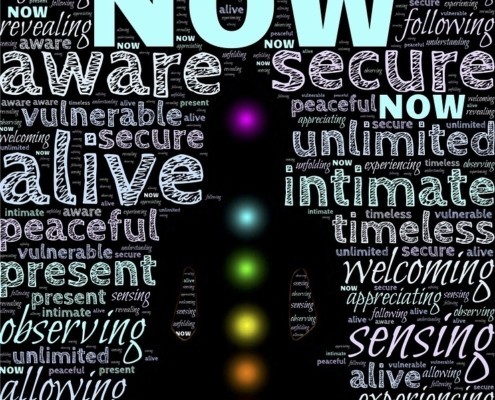
The High Cost of Addiction
Anyone who has struggled with addiction or has had a loved one has to know that addiction is a form of living death. A once healthy, functioning human being can be reduced to a shadow of their former selves, a hungry ghost in bondage to their DOC (Drug of Choice). Lives and families are ruined. Relapse rates for addicts are staggering. Many have tried, some countless times, to get that monkey of their back once and for all with varying degrees of success. The emotional, physical, psychological, and mental consequences are severe.
Over time, alcoholism and drug abuse can cause or increase the risk for a variety of chronic diseases and other serious problems, including:
- Heart disease, heart attack, high blood pressure, stroke, liver disease, and digestive problems
- Various forms of cancer
- Learning and memory issues, dementia
- Depression, anxiety, and other mental health issues
- Issues with relationships, family, career, finances, law
- Weakened immune system
- Nervous system issues
- Emotional issues – anger, irritability, impulsiveness, etc.
- Impaired judgment and decision making
- Deteriorating hygiene, diet, and lifestyle choices
- Pregnancy complications and birth defects
- Higher incidence of high-risk behaviors and sexually transmitted diseases
- Higher risk of Hepatitis and HIV transmission through needle sharing
- Hopelessness, isolation, despair
- Loss of purpose and spiritual connection

Alcohol and Substance Abuse are a national and global epidemic. The statistics are frightening:
- The National Survey on Drug Use and Health (NSDUH) reports that 21.5 million American adults had a substance abuse disorder in 2014.
- In 2014, almost 8 million Americans had both a mental health disorder and a substance abuse issue, according to the Substance Abuse and Mental Health Services Administration (SAMHSA).
- The Office on National Drug Control Policy (ONDCP) estimates the cost of drug abuse and addiction in America is close to $200 billion in healthcare, criminal justice, legal, and workplace productivity in 2007.
- In 2013, there were 489,000 people incarcerated for drug-related offenses, compared to only 40,900 in 1980. About half of inmates meet DSM-IV criteria for substance abuse or dependence. (The Center for Prisoner Health and Human Rights)
- The extent of worldwide psychoactive substance use is estimated at 2 billion alcohol users, 1.3 billion smokers, and 185 million drug users.[2]World extent of psychoactive substance use in an initial estimate of factors responsible for the global burden of disease, tobacco, alcohol, and illicit drugs contributed together 12.4% of all deaths worldwide in the year 2000.

Stats on Addiction Treatment
- About 1.3 million adults and 73,000 adolescents received treatment in 2013 at a specialized facility for an alcohol use disorder, NIAAA
- In 2013, only 10.9 percent of the individuals who needed treatment in a specialized facility for a substance use or dependency concern actually received it, NSDUH
- Over 115,000 Alcoholics Anonymous (AA) groups exist in more than 175 countries around the world, serving more than 2 million members.
- Relapse is common in addiction treatment, with relapse rates being between 40 and 60 percent, NIDA This rate is very similar to rates of relapse with other chronic diseases like hypertension, asthma, or type I diabetes.
- Addiction is considered a highly treatable disease, and recovery is attainable. About 10 percent of Americans (adults who were at least 18 years old) claim to be in recovery from an alcohol or drug abuse issue, the New York State Office on Alcoholism and Substance Abuse Services (OASAS) publishes.

- Twenty-three million Americans are currently addicted to alcohol and/or other drugs. Only one in 10 of them (2.6 million) receives the treatment they need. The result: a treatment gap of more than 20 million Americans.
- Cost and lack of insurance is the primary obstacle cited by Americans who say they need but are unable to receive treatment. Among those able to access treatment, nearly half (48.4 percent) reported using their own money to pay for their care.
- In contrast to other chronic diseases, funding for addiction treatment disproportionately comes from government sources. More than three-quarters – 77 percent – of treatment costs are paid by federal, state, and local governments, including Medicaid and Medicare. Private insurance covers only 10 percent of addiction treatment costs, with out-of-pocket expenditures and other private funding making up the remaining percentage. In contrast, private insurance pays for approximately 37 percent of general medical costs.
- Screening and treatment are not integrated into the health care delivery system. Less than seven percent of those receiving treatment were referred by another health provider. In contrast, slightly more than two-thirds of those receiving treatment got there through self-referrals or the criminal justice system.
Now that we have thoroughly laid out the severity of the issues, let us switch gears to focus on recovery and healing. The information provided about complementary and alternative medicine and holistic practices is in no way intended to depreciate the value of Western Medicine and addiction recovery methods. Western Medicine, inpatient and outpatient care, medication, medical detox, psychotherapy and other therapies, 12 step programs, and many other methods may be necessary or beneficial as part of a recovering addict’s overall treatment protocol. According to NIDA, there are over 14,500 specialized alcohol and drug addiction treatment programs, ranging from therapy to pharmaceuticals to Complementary and Alternative Medicine (CAM). Many people, however, may find profound benefits and success through holistic health and wellness practices and nutrition. I present a wide range of modalities to explore. The best approach is to try a lot of different techniques and see what works best for your specific recovery, life, and health needs. For anyone recovering from addiction, holistic practices should be accompanied by a professional treatment plan, and are a vital part of a sustainable long-term recovery plan.
Scroll down to read about different holistic healing modalities and wellness practices and how they benefit addiction recovery.

Yoga
 Yoga is a more than 5,000-year-old practice and body of wisdom, originally from India. The word “yoga” comes from the Sanskrit word for “union,” referring to the unification of the individual consciousness or soul with Universal Consciousness or Spirit. Yoga seeks to harmonize the mind, body, and spirit through a combination of poses (asanas), breathing techniques, and meditation.
Yoga is a more than 5,000-year-old practice and body of wisdom, originally from India. The word “yoga” comes from the Sanskrit word for “union,” referring to the unification of the individual consciousness or soul with Universal Consciousness or Spirit. Yoga seeks to harmonize the mind, body, and spirit through a combination of poses (asanas), breathing techniques, and meditation.
Yoga is becoming more and more common in addiction recovery centers and as a complement to individual addiction recovery programs to reduce relapse, to ease withdrawal symptoms and cravings, for detoxification, and to provide a healthy outlet for coping with the stress of recovery and daily life.
Yoga has been proven to have a wealth of health benefits that may aid in the addiction recovery process. These include:
- Reduced stress, anxiety, and depression
- Improved strength, stamina, and flexibility
- Greater mindfulness and self-awareness
- Healthier exercise and nutrition habits
- Improved self-confidence and self-esteem
- Relief of chronic pain
- Improved sleep
- Increased energy and reduced fatigue
- Increased patience, concentration, and calmness
- Improved emotional and psychological health
- Overall health and wellness improvement
Scientific research is supporting the efficacy of yoga for helping throughout the addiction recovery process. “Mindfulness derives from ancient Buddhist philosophy, and mindfulness meditation practices, such as gentle Hatha yoga and mindful breathing, are increasingly integrated into secular health care settings. Current theoretical models suggest that the skills, insights, and self-awareness learned through yoga and mindfulness practice can target multiple psychological, neural, physiological, and behavioral processes implicated in addiction and relapse. A small but growing number of well-designed clinical trials and experimental laboratory studies on smoking, alcohol dependence, and illicit substance use support the clinical effectiveness and hypothesized mechanisms of action underlying mindfulness-based interventions for treating addiction. Overall, current findings increasingly support yoga and mindfulness as promising complementary therapies for treating and preventing addictive behaviors.” (Khanna, 2013)
Another study looked at the benefits of specific yoga techniques used for detoxification and rehabilitation which included breath control, relaxation, meditation, posture, diet, and chanting. The results strongly suggest that yoga is a positive motivator for rehabilitation and aids in the detoxification process. Results improved when yoga was combined with counseling and group work. (Lohman, 1999)
Excessive drug or alcohol use can alter pathways related to pleasure and reward, emotional regulation, decision making, and impulse control. Research is showing that yoga may be able to aid in the recovery of these neural pathways.
Yoga may also have a direct positive effect on the brain’s neurochemistry. The Journal of Alternative and Complementary Medicine reported on a study that showed that levels of gamma-aminobutyric acid (GABA) increased in the brain with yoga practice. GABA serves as a natural tranquilizer and can help manage stress and anxiety, which are often triggered for relapse and side effects of withdrawal. A yoga practice can help to reduce these symptoms and aid withdrawal and relapse prevention.
Meditation
 There is a large body of research supporting the benefits of meditation and mindfulness practice for addiction recovery, withdrawal, and relapse prevention.
There is a large body of research supporting the benefits of meditation and mindfulness practice for addiction recovery, withdrawal, and relapse prevention.
Large improvements in relapse prevention were seen with the addition of Transcendental Meditation (TM) to the routine treatment program in an alcohol residential treatment facility. 65% of the TM group reported complete abstinence 18 months after leaving the center, compared to only 25% with the control group that did not practice TM. (Taub, 1994)
Another study followed a 20-week mindfulness and modification therapy compared to a standard protocol for alcohol problems, drug use, and physical and verbal aggression. The study found significant decreases in drug and alcohol use, as well as physical and verbal aggression, following up 2 months after the program. (Wupperman, 2015)
A meta-analysis of 10 studies measured the effects of Acceptance and Commitment Therapy (ACT), which involves mindfulness practices, on substance abuse. It compared this to treatments including Cognitive Behavioral Therapy (CBT), medication, 12-step programs, and other treatments. A significant effect was found that favored ACT over all other treatments. (Lee, 2015)
Meditation is correlated with reduced relapse rate, anxiety, stress, and greater ability to handle triggering situations. It has been shown to have a number of mental, physical, and emotional health benefits. It can also calm the mind, improve concentration, patience, and discipline, and improve self-confidence and self-esteem, all of which can support the recovery process.
Acupuncture
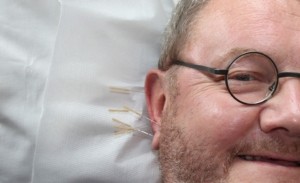 Acupuncture is a key component of Oriental and Eastern Medicine developed in China over 2,500 years ago. The technique involves inserting thin needles into different key points on the body called meridians, to manipulate the flow of Qi (Chi) or Life Force Energy within the body for healing purposes. Practitioners believe that illness, pain and disease are caused by a disruption or blockage in this energy flow, which can be brought back into balance and proper flow through acupuncture. It is widely used for pain relief and a number of other conditions, and modern medicine is starting to formally recognize the efficacy of this ancient practice as an adjunct or alternative treatment.
Acupuncture is a key component of Oriental and Eastern Medicine developed in China over 2,500 years ago. The technique involves inserting thin needles into different key points on the body called meridians, to manipulate the flow of Qi (Chi) or Life Force Energy within the body for healing purposes. Practitioners believe that illness, pain and disease are caused by a disruption or blockage in this energy flow, which can be brought back into balance and proper flow through acupuncture. It is widely used for pain relief and a number of other conditions, and modern medicine is starting to formally recognize the efficacy of this ancient practice as an adjunct or alternative treatment.
Research is proving that Acupuncture may be useful in addiction recovery. Acupuncture was shown to have a significant effect on reducing smoking in a smoking cessation study of 141 adults. These effects were greater when acupuncture was combined with education, especially on long-term smokers. (Bier, 2002)
A study on acupuncture and cocaine addiction concluded that patients who received acupuncture were significantly more likely to test free of cocaine at the end of the eight-week treatment period. Researchers concluded that acupuncture was promising for treating cocaine addiction and should be studied further. (Avants, 2000)
Acupuncture is now found in addiction treatment centers across the world and can be a valuable part of an overall addiction recovery protocol through all phases of treatment. There is even an acupuncture treatment designed specifically for addiction called the NADA (National Acupuncture Detoxification Association) protocol. This involves placing five needles into five specific points on each ear, connected to the autonomic nervous system, the kidneys, liver, lungs, and the Shen Men “spirit gate,” a point believed to allow spirit to flow into the body.
Acupuncture has been shown to have a number of benefits that may specifically aid addiction recovery. These include reduced cravings, relief of stress, anxiety, depression, chronic pain, and improved sleep.
Nutrition
 There are many different schools of thought in nutrition. Weston Price students swear by the health benefits of grass feed beef, bone marrow, ghee, raw dairy, and other animal fats. Vegans believe that avoiding any animal meat or products is most healthy. On the far end of the spectrum, Breatharians believe that you can live without any food and sometimes water and sustain life through harnessing the energy that surrounds us. Some diets may work well for some and not others. The best rule of thumb is to try different nutritional regimens and see what feels best for your body and best suits your specific health needs. With that said, there are some general guidelines for good nutrition that are fairly common.
There are many different schools of thought in nutrition. Weston Price students swear by the health benefits of grass feed beef, bone marrow, ghee, raw dairy, and other animal fats. Vegans believe that avoiding any animal meat or products is most healthy. On the far end of the spectrum, Breatharians believe that you can live without any food and sometimes water and sustain life through harnessing the energy that surrounds us. Some diets may work well for some and not others. The best rule of thumb is to try different nutritional regimens and see what feels best for your body and best suits your specific health needs. With that said, there are some general guidelines for good nutrition that are fairly common.
- Eat an abundance of fresh, healthy, organic, non-GMO fruits, vegetables, and nuts
- Avoid processed food, fast food, fried food, and junk food
- Avoid processed sugar
- Avoid trans fats, high fructose corn syrup, and partially hydrogenated oils
- Moderate salt intake
- Limit wheat and gluten products, eat quinoa or brown rice instead of white rice
- Avoid soda and sugary drinks and fruit juices
- If you do eat meat or dairy, make sure it is from grass-fed, free-range, antibiotic-free, humanely treated animals
- Eat healthy oils like coconut, flax, and hemp oils
- Eat superfoods like chia seeds, spirulina, kale, broccoli, avocados, almonds, nutritional yeast, etc.
- Eat a lot of fresh herbs and spices
- Eat probiotic, lactofermented food to promote healthy gut flora and microbiome
- Listen to your body, eat small meals spaced through the day, avoid excessive snacking
- Chew food thoroughly until it is the texture of baby food. The saliva contains important digestive enzymes.
- Choose sustainably grown, locally-sourced, and organic products whenever possible
Ayurveda
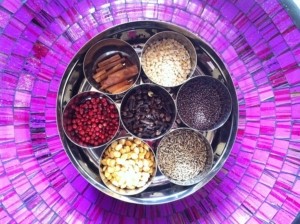
Homeopathy and Herbal Medicine
 Herbal Medicine, the practice of taking medicinal plants and herbs to treat diseases and illnesses and to promote health, has roots in all ancient cultures. Homeopathy is actually a distinct practice from herbal medicine, although the two terms are often used interchangeably and there is much overlap and has been around in its modern form for 230 years. The word Homeopathy is derived from Greek for “like disease,” meaning that that treatment given is similar to the disease the person is experiencing. Homeopathy is considered a holistic approach to alcoholism because it looks at a person in their totality, mind, body, and spirit, and medicines prescribed are meant to mirror the sickness of the person as a whole, not just a specific symptom or diagnosis. Homeopathy also operates on the principle of minimum dosing, and homeopathic remedies are prepared through repeated dilution and “succussion” or shaking to create the lowest effective dose.
Herbal Medicine, the practice of taking medicinal plants and herbs to treat diseases and illnesses and to promote health, has roots in all ancient cultures. Homeopathy is actually a distinct practice from herbal medicine, although the two terms are often used interchangeably and there is much overlap and has been around in its modern form for 230 years. The word Homeopathy is derived from Greek for “like disease,” meaning that that treatment given is similar to the disease the person is experiencing. Homeopathy is considered a holistic approach to alcoholism because it looks at a person in their totality, mind, body, and spirit, and medicines prescribed are meant to mirror the sickness of the person as a whole, not just a specific symptom or diagnosis. Homeopathy also operates on the principle of minimum dosing, and homeopathic remedies are prepared through repeated dilution and “succussion” or shaking to create the lowest effective dose.
A number of herbs are believed to have positive effects that may specifically benefit addiction recovery.
These include:
- Hawthorn berries help a heart that has been weakened by substance use
- Dandelion cleanses the spleen, which can take a toll from addiction
- Milk thistle detoxifies the liver without inhibiting the liver’s ability to detox
- Burdock root cleanses the blood and kidneys
- Kudzu has been used to treat alcohol addiction in Asian cultures for hundreds of years and is now producing positive results in animal testing
- Siberian ginseng has been shown to help with cocaine and opiate addiction
- Valerian Root has a calming effect that may help with opiate withdrawal
This is only a small sample of the hundreds or thousands of medicinal herbs that may help with addiction recovery, withdrawal, detox, and secondary conditions associated with addiction. An herbal medicine doctor or homeopathic practitioner will prescribe a regiment of herbs for the patient’s specific health needs. Research is verifying that plants and herbs that have been used for healing for thousands of years are beneficial to addiction recovery.
The government of India ran a double-blind study on 60 heroin addicts. Half were given an individualized regimen of homeopathic medicines and half were given a placebo. The homeopathic group had significantly fewer and less intense withdrawal symptoms than the placebo group. 35% of the patients in the placebo group left the study early because they thought they were not receiving any therapeutic benefit. In contrast, only 5% of those in the homeopathic group left early. (Bakshi, 1990)
Another double-blind, placebo-controlled study found decreased relapse rate among recovering alcoholics and drug addicts receiving homeopathic treatment. (Garcia-Swain, 1993)
A study by the Central Council for Research in Homeopathy (CCRH) in India followed 241 addicts who were given a homeopathic treatment regimen within 12 hours of first abstaining from use. 209 of the 241 showed significant improvement in withdrawal symptoms. (CCRH, 1994)
Exercise
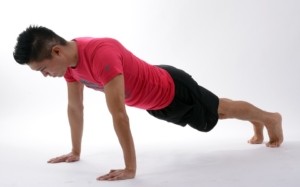
Recreation Therapy
 Recreation Therapy is another way of saying healing through having fun and enjoying activities and hobbies. Recreation gives us an opportunity to relieve stress and anxiety, achieve greater happiness and satisfaction, connect to nature, exercise and improve health, and develop community. We may even experience a natural high or euphoria from adrenaline-inducing activities, and a different kind of high from peaceful and meditative activities as well.
Recreation Therapy is another way of saying healing through having fun and enjoying activities and hobbies. Recreation gives us an opportunity to relieve stress and anxiety, achieve greater happiness and satisfaction, connect to nature, exercise and improve health, and develop community. We may even experience a natural high or euphoria from adrenaline-inducing activities, and a different kind of high from peaceful and meditative activities as well.
Recreation Therapy can encompass a wide range of different activities and techniques. These can include hiking, biking, fitness, surfing, running, kayaking, gardening, art, music, photography, and many more. There is a wide body of research and expertise around the therapeutic and health benefits and skill development around activities like these. Research suggests that various forms of recreational therapy may have benefits for addiction recovery.
Nature Therapy and Permaculture

Reiki
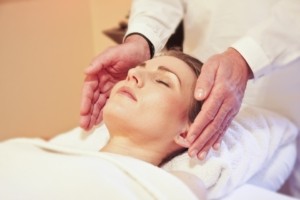 Reiki is an energy healing treatment that works holistically; on the whole body, mind and spirit. Not a system of religious beliefs, Reiki is simply a relaxing treatment whereas natural healing vibrations are transmitted through the hands of a Reiki practitioner (acting as a conduit) to the body of the recipient. The purpose of a Reiki treatment is to relieve stress and pain, induce relaxation, release emotional blockages, accelerate natural healing, balance subtle bodies energies and support other medical modalities including traditional therapies. The International Center for Reiki Training has estimated that there are 4,000,000 people throughout the world who have taken at least one level of Reiki training. There are three traditional levels of expertise. Today, Reiki education is offered free of charge in more than 800 American Hospitals as a means to accelerate the healing process and alleviate pain.
Reiki is an energy healing treatment that works holistically; on the whole body, mind and spirit. Not a system of religious beliefs, Reiki is simply a relaxing treatment whereas natural healing vibrations are transmitted through the hands of a Reiki practitioner (acting as a conduit) to the body of the recipient. The purpose of a Reiki treatment is to relieve stress and pain, induce relaxation, release emotional blockages, accelerate natural healing, balance subtle bodies energies and support other medical modalities including traditional therapies. The International Center for Reiki Training has estimated that there are 4,000,000 people throughout the world who have taken at least one level of Reiki training. There are three traditional levels of expertise. Today, Reiki education is offered free of charge in more than 800 American Hospitals as a means to accelerate the healing process and alleviate pain.
Another benefit is that it allows nurses and doctors to bond more closely with their patients, which can increase a patient’s trust, comfort, and faith in their own healing.
Reiki is rapidly gaining mainstream acceptance in the medical community and in the general population as a complementary treatment. A 2007 study found that 1.2 million adults and 161,000 children in the U.S had received an energy healing session such as Reiki in the previous year. A 2008 USA Today article reported that over 800 hospitals, 15% of all U.S. hospitals, offered reiki treatments as a regular part of patient services. Legitimate scientific research is showing dramatic improvements in patient health attributed to Reiki. A study from Hartford Hospital in Connecticut found that patients who received Reiki treatments improved sleep by 86%. reduced pain by 78%, and nausea by 80%.
Qigong
 Qigong (also spelled Chi Kung or Chi Gung) is a system of healing, exercise, and meditation involving synchronized breathing and movement patterns and energy healing techniques. Practitioners believe that Qigong stretches the body, increases fluid movement (blood, synovial, and lymph), and cultivates Qi or Chi Energy, the vital Life Force Energy of the Universe. This Chi Energy is then directed by the mind to heal the self and others. It works with the system of meridians mapped out by acupuncture and is intended to restore proper flow to energy centers and channels in the body.
Qigong (also spelled Chi Kung or Chi Gung) is a system of healing, exercise, and meditation involving synchronized breathing and movement patterns and energy healing techniques. Practitioners believe that Qigong stretches the body, increases fluid movement (blood, synovial, and lymph), and cultivates Qi or Chi Energy, the vital Life Force Energy of the Universe. This Chi Energy is then directed by the mind to heal the self and others. It works with the system of meridians mapped out by acupuncture and is intended to restore proper flow to energy centers and channels in the body.
Qigong has been practiced by millions of people in China dating back over 3,000 years as an effective form of meditation and exercise, and for healing of mind, body, and spirit. A wide body of research shows that Medical Qigong is beneficial in treating a wide range of chronic illnesses and diseases. Qigong also improves concentration and can help to manage stress, anger, depression, and anxiety. At its core, Qigong is a spiritual practice. Derived from Taoism, Qigong is a path to unification with the Tao, the Way also referred to as enlightenment, Nirvana, awakening, and liberation.
Substantial research indicates that Qigong is a beneficial complementary practice for addiction recovery.
A study conducted in China on 86 male heroin addicts who were detoxing found that the treatment group who practiced Qigong had reduced anxiety and more rapid reduction of withdrawal symptoms than the control group who only receive detox drugs. (Li, 2002) Qigong may help with detoxification by stimulating the lymphatic system.
A Harvard study gave 4-6 sessions over two weeks of either Qigong or a sham treatment to 101 cocaine addicts. The Qigong group had reduced cravings and depression symptoms. (Smelson, 2013)
Martial Arts
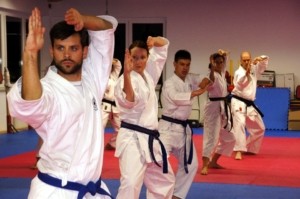 One of Kung Fu’s philosophical principles may also be helpful for an addict on the path to recovery. Kung Fu, and other disciplines such as Tai Chi and Aikido, teach to “Surrender, Accept and Redirect.” When an opponent throws a strike at you, you don’t resist or try to fight back the energy of it. You don’t step in the way of the force coming toward you. Instead, you surrender to it, step out of the line of impact, absorb the energy that is coming toward you, and through the path of least resistance redirect that energy into something else, such as a reversal or takedown. The power of the negative energy coming toward you is proportional to the positive energy you can generate by transmuting the attack. Another way to look at that is that the severity of the addiction is proportional to the potential for healing. I see this framework as exceptionally relevant to recovery. It even reminds me of the Serenity Prayer from Alcoholics Anonymous:
One of Kung Fu’s philosophical principles may also be helpful for an addict on the path to recovery. Kung Fu, and other disciplines such as Tai Chi and Aikido, teach to “Surrender, Accept and Redirect.” When an opponent throws a strike at you, you don’t resist or try to fight back the energy of it. You don’t step in the way of the force coming toward you. Instead, you surrender to it, step out of the line of impact, absorb the energy that is coming toward you, and through the path of least resistance redirect that energy into something else, such as a reversal or takedown. The power of the negative energy coming toward you is proportional to the positive energy you can generate by transmuting the attack. Another way to look at that is that the severity of the addiction is proportional to the potential for healing. I see this framework as exceptionally relevant to recovery. It even reminds me of the Serenity Prayer from Alcoholics Anonymous:
God grant me the serenity to accept the things I cannot change; courage to change the things I can; and wisdom to know the difference.
First, we must surrender. In other words, admit there is a problem. To resist surrender is to persist in the addiction. Resistance may take the form of denial, unwillingness to stop, justification, or other tactics that addicts use to prolong their use. We find that place of serenity and clarity amidst the chaos. We recognize the impact of the attacking force, the addiction.
Next, we accept. We own where we are at in the process. We admit if things are out of control. We take a fearless moral inventory and look at the damage we have caused ourselves and others. We take ownership. We ask for help.
Finally, we redirect. We use to turn the energy of the illness into fuel for recovery. We make amends with those we have harmed. We express ourselves in a better way in the world. We tell our story. We choose to live a better, healthier life by a higher set of principles. We give back and help others find healing.
A martial arts practice can serve to cultivate several qualities in an individual that may support the addiction recovery process. These include discipline, balance, patience, calmness, relaxation, leadership, self-confidence, self-esteem, resiliency, respect, and humility. In many traditions, sobriety itself is a tenant. Martial arts can also produce profound physical, mental, and emotional health benefits.
Furthermore, most disciplines involve a Master/Student relationship, in which the Master may serve as a guide and mentor for the student in many aspects of life, and help keep them on track with recovery.
Breathwork
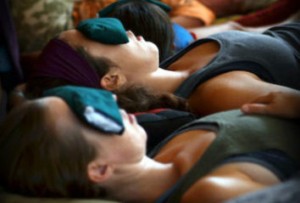 Breathwork is an umbrella term referring to a wide range of different disciplines and traditions which utilize rhythmic breathing patterns and meditation to achieve higher states of consciousness, detoxification, self-exploration, and healing. There are many different forms of breathwork including Holotropic, Pranayama, and the Wim Hof Method. and it is a foundational component of traditions like Kundalini Yoga, Tantra, Tai Chi, Qigong, and other Eastern spiritual practices and mystical traditions.
Breathwork is an umbrella term referring to a wide range of different disciplines and traditions which utilize rhythmic breathing patterns and meditation to achieve higher states of consciousness, detoxification, self-exploration, and healing. There are many different forms of breathwork including Holotropic, Pranayama, and the Wim Hof Method. and it is a foundational component of traditions like Kundalini Yoga, Tantra, Tai Chi, Qigong, and other Eastern spiritual practices and mystical traditions.
Breathwork is believed to have a number of powerful health and spiritual benefits. Specific to addiction, it is a powerful form of detoxification and can provide catharsis for releasing emotional and physical pain and trauma. It is an effective tool for improving mental clarity, relaxation, and sleep habits, and for coping with stress, anger, anxiety, and depression. At its core, Breathwork is a spiritual practice intended to facilitate expanded self-awareness, consciousness, and ultimately enlightenment.
Research is now showing that Breathwork may be especially helpful for recovering addicts. In a study by the Center for Transpersonal Studies and Development, “the effects of Holotropic Breathwork were examined in twenty adults recovering from alcoholism or other chemical addictions.
Results indicate that Holotropic Breathwork is an effective therapeutic tool for treating alcoholism and drug addiction. The results of this particular sample also suggest that Holotropic Breathwork could prove very beneficial in the area of relapse prevention. Each area examined indicated improvement or a positive eventual outcome. The highest improvements were in the areas of depression and anxiety, feelings and emotions; family, relationships and intimacy; stress reduction; self-esteem and spirituality.” (Metcalf, 1995)
A later study concluded that “[Holotropic Beathing] offers the addict many opportunities that may enhance addiction treatment, including entering non-ordinary states of consciousness to seek healing and wisdom via a natural, non-addictive method, a direct experience of one’s Higher Power, and for physical and emotional catharsis associated with stress and prior trauma. We report the successful use of HB in 4 cases in which complete abstinence was obtained and maintained for extended periods of time (2–19 years). (Brewerton, 2011)
Breathwork may be a helpful tool for addicts for another reason. Quite simply, it can get you really high, without the need for drugs or alcohol.
A study by MAPS documented 482 consecutive psychiatric patients at a community hospital that participated in Holotropic Breathwork. The hospital had 11,000 participants over 12 years. 82% of them reported a “transpersonal” or “mythopoetic” experience, such as an out-of-body experience, vision, or psychedelic state. The study concluded that Holotropic Breathwork is an effective non-drug alternative to achieve psychedelic states. (Eyerman, 2013)
Tai Chi
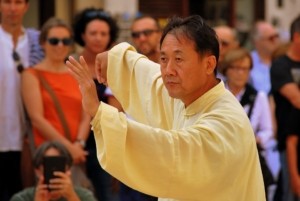
Sensory Deprivation
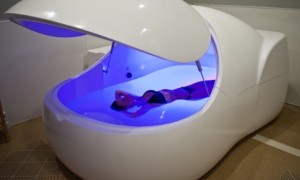
Massage and Bodywork
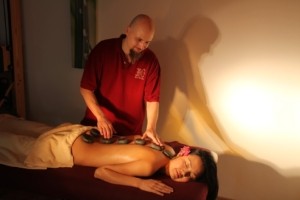
Sound Healing
 Fundamental frequencies, harmonics, rhythms, and sounds transcend ego identification.
Fundamental frequencies, harmonics, rhythms, and sounds transcend ego identification.
Hypnotherapy
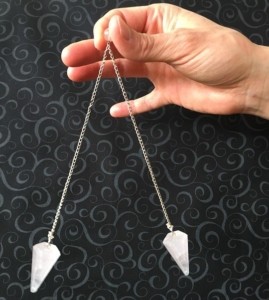
Community and Support Groups

Volunteering

Animal-Assisted Therapy

Plant Medicine and Shamanism
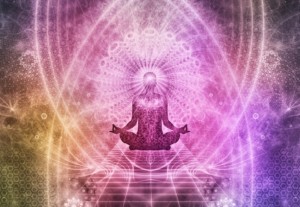 The use of psychedelic or entheogenic plant medicines for addiction recovery is a controversial subject in the recovery community but is one that is gaining a lot of attention and notoriety recently and warrants further exploration as a legitimate addiction recovery treatment. The author does not recommend for or against the use of these medicines but encourages the reader to do additional research and see if it resonates for them.
The use of psychedelic or entheogenic plant medicines for addiction recovery is a controversial subject in the recovery community but is one that is gaining a lot of attention and notoriety recently and warrants further exploration as a legitimate addiction recovery treatment. The author does not recommend for or against the use of these medicines but encourages the reader to do additional research and see if it resonates for them.
Entheogenic (from Greek for “generating the divine within”) medicines such as Ayahuasca, Peyote, Iboga, MDMA, Mushrooms, LSD, Kambo, and various forms of DMT have been showing tremendous benefits for addiction recovery. Currently, most of these medicines are illegal in the United States. Peyote is protected for use by the Native American Church and certain tribes for sacramental purposes. To experience medicines legally, seekers will need to travel internationally. There are medically supervised Iboga clinics in Canada and Mexico that provide treatment specifically for addiction. Many people are traveling to Brazil and Peru and other South American countries to work with ayahuasqueros, shamans who lead healing ceremonies using Ayahuasca. Many practitioners offer treatment discretely domestically as well, although it comes with significant legal risk.
It is essential that treatments be supervised by an experienced practitioner or shaman. Safety is of the utmost importance, as are the energy and dynamics of the group, the setting, and the specifics of the ceremony or experience. If you do elect to investigate these plant medicines further, I encourage you to do your homework and make sure it is the right situation before moving forward.
The effects of these medicines can range widely, but collectively they may offer a wide range of effects and potential benefits that may aid addiction recovery.
These include:
- Sense of higher purpose, spiritual connection
- Feeling a sense of interconnectedness with others and everything
- Greater connection to nature
- Detoxification of mind, body, and spirit
- Healing a wide range of physical, mental, emotional, and psychological illness
- Healing of depression and anxiety
- Elimination of parasites, viruses, and harmful bacteria
- Release of ego identification, judgment, shame, guilt
- The more expansive and flexible belief system
- Boost to the immune system
- Healing of past traumas
- Greater self-awareness and self-love
- Insights, inspiration, clarity, creativity
- Healthier diet and lifestyle
- Reduction of withdrawal and detox symptoms
- Balancing of Neurochemistry, Neurogenesis
- Chronic pain relief
- Greater sense of service, gratitude, empathy, and humility
- Connection to a lineage and “medicine family”
From a spiritual/metaphysical perspective, there are some more “out there” benefits that could potentially aid addiction recovery. These include clearing of karma and past lives, healing ancestral patterns, expelling negative spirits or entities, enlisting spiritual allies and healing, communicating with spiritual guides, clearing chakras and energetic channels, stepping outside of time and space, precognition and telepathy, and expanding consciousness. The shaman himself or herself acts as an instrument for the healing power of the medicine and may perform rituals or healing modalities that can provide healing, visionary states, and spiritual expansion.
The experience of non-ordinary reality can have a powerful impact on an addict because it allows them to experience a place beyond their addiction and daily life. They can touch an aspect of themselves that is beyond the control of the drug and remember their innate potential to change and heal. Addiction can be a very isolated, selfish disease. Psychedelics can create a sense of being a part of something bigger, to look outside of oneself as well as within, to remember that we are interconnected and that our lives and choices matter. This in itself may be a powerful motivator to recover.
Scientific research is now coming around to support the efficacy of these medicines for addiction recovery. A recent study in Brazil provides evidence that Iboga is an effective treatment for drug addiction for a number of substances including cocaine, heroin and opiates, alcohol, tobacco, and marijuana. After undergoing an Iboga treatment protocol, 61% of the patients were still completely abstinent after 8 months. Multiple Iboga treatments resulted in longer average periods of abstinence. This is compared to a 26% abstinence rate with psychotherapy alone. The vast majority of patients had tried non-psychedelic treatments with no success, and most said that Iboga was essential to their recovery.
A study by MAPS (Multidisciplinary Association for Psychedelic Studies) looked at the effect of ayahuasca retreat on addiction recovery. “Statistically significant (p < 0.05) improvements were demonstrated for scales assessing hopefulness, empowerment, mindfulness, and quality of life meaning and outlook subscales. Self-reported alcohol, tobacco and cocaine use declined, although cannabis and opiate use did not; reported reductions in problematic cocaine use were statistically significant. All study participants reported positive and lasting changes from participating in the retreats.” (Thomas, 2013)
Another study by MAPS is provided evidence that MDMA has therapeutic benefits that may aid addiction recovery. “MDMA may also help treat substance abuse based on shared features with psychedelic compounds and recent reports indicating that MDMA-assisted psychotherapy can reduce symptoms of PTSD. Narrative reports and data from early investigations found that some people reduced or eliminated their substance use after receiving MDMA, especially in a therapeutic setting. MDMA could either directly treat neuropharmacological abnormalities associated with addiction, or it could indirectly assist with the therapeutic process or reduce symptoms of comorbid psychiatric conditions, providing a greater opportunity to address problematic substance use.” (Jerome, 2013)
MAPS and other organizations are taking the lead in scientific psychedelic research, and the possible use in addiction treatment. Results have been exceptional thus far, but a great deal of additional research is needed to validate psychedelic-assisted therapies and plant medicine ceremonies as legitimate treatment options.
Spirituality
 Spiritual practice and a sense of being connected to a higher power and purpose can be important factors to addiction recovery.
Spiritual practice and a sense of being connected to a higher power and purpose can be important factors to addiction recovery.
The following spiritual principles have supported me in my own healing process and awakening to higher consciousness and may be beneficial to addiction recovery. They are derived primarily from Eastern traditions including Buddhism, Hinduism, Taoism, Sufism, and Sikhism, shamanic traditions and indigenous cultures, as well as Spiritual Psychology and Quantum Physics. With that said, I have found great wisdom and insights in Christianity, Judaism, Islam, and a number of other traditions and integrated those as well. I offer these principles humbly for consideration and am in no way advocating for any particular religious or spiritual practice. These are tools that work for me, see if they resonate with you or not. However, whatever your unique connection with a higher power is, whether you identify with a particular religion or not, developing and practicing that connection can be powerful for addiction recovery and healing.
Some spiritual principles that may support addiction recovery and healing:
- There is a higher power. Life has meaning and purpose. My addiction and recovery have meaning and purpose. Everything is happening according to divine will and perfection.
- We are expressions of a higher power. Everything, including ourselves, our lives, and our bodies, is sacred because it is a manifestation of a higher power. When we use drugs and alcohol or mistreat ourselves or others, we are doing so to God itself. Conversely, when we take care of ourselves and others, are doing that to God itself.
- We are all one. We are all manifestations or creations of the same God, Spirit, Higher Consciousness. We are interconnected and interdependent. We are in this together. When we use, when we succumb to addiction, when we don’t get better, we hurt all those we are connected to as well, and in some way, we hurt everything that is. On the flip side, when we recover and heal and thrive, we do so for all our relations and all of existence.
- We are spiritual beings having a human experience. We come to this earth school, this existence thing, for the evolution of our souls and consciousness. It’s ok to make mistakes. Everything that happens to us is for the evolution of our souls and consciousness. Nothing is inherently right or wrong, good or bad. We experience whatever meaning we ascribe.
- We create our reality. Our experience of reality, of the quality of our lives, is a reflection of our thoughts, words, and actions, our beliefs and judgments, and perceptions. By shifting our perspectives and taking control of our healing and recovery consciously, we can powerfully change our experience of the world and ourselves and change the underlying factors that lead to addiction and relapse. Sure, there may be biological, chemical, or circumstantial factors outside of our direct control that may influence our desire to use, but
- Attachment or desire is the root of suffering. The Second Noble Truth of Buddhism reminds us that our addiction (our desire) is the root of our suffering. The Fourth Noble Truth reminds us that liberation (Nirvana) is possible through freedom from desire, by living a balanced life and following the Eightfold Path: right views, intention, speech, action, livelihood, effort, mindfulness, and concentration. I see a lot of similarities between the Eightfold Path to liberation and the 12 Step path to addiction recovery.
- The universe is infinite. We are very, very small.
- Love is our essential nature. We are made of love. The universe is made of love. God is love. Our purpose is to love and to return to remembrance and union with the universal, unconditional love that created us. Even our suffering and struggles are a form of love beyond our comprehension. We can let go of shame, guilt, and suffering because God loves us unconditionally. Ultimately, we heal by finding the love for ourselves, life, and Spirit, and through the shared love between our friends, families, partners, and communities.
Scientific research supports the idea that a sense of spiritual connection or spiritual practice may be important factors in recovery.
“Individuals recovering from addictions frequently cite spirituality as a helpful influence.In the present study, focus groups were conducted with 25 methadone-maintained outpatients to examine beliefs about the role of spirituality in recovery and its appropriateness in formal treatment. Groups also discussed the relationship between spirituality and behavior during active addiction. Thematic analyses suggested that spirituality and religious practices suffered in complex ways during active addiction, but went “hand in hand” with recovery. Nearly all participants agreed that integration of a voluntary spiritual discussion group into formal treatment would be preferable to currently available alternatives.” (Heinz, 2010)
Research also supports the power of prayer to help addiction recovery.
A research study at NYU Langone Medical Center studied the brain activity of 20 Alcoholics Anonymous members using an MRI, to evaluate the effectiveness of reciting the AA prayer in response to a craving. “AA members’ prayer was associated with a relative reduction in self-reported craving and with the concomitant engagement of neural mechanisms that reflect control of attention and emotion. These findings suggest neural processes underlying the apparent effectiveness of AA prayer.” (Galanter, 2016)
Prayer and asking for support from a higher power are essential components of Alcoholics Anonymous. Many recovery programs are faith-based. It seems that framing one’s recovery in a spiritual context seems to aid recovery. It provides a higher set of principles and greater purpose, faith and hope for healing and redemption, and a belief in a divine plan that is guiding one’s life. All of these may be powerful motivators in recovery.
Conclusions
Science has verified what the ancients have known for thousands of years. Holistic healing modalities, nutrition, and spirituality all play a powerful role in healing and achieving optimal health of mind, body, and spirit. While an inpatient program or 12 step program may be essential to quitting use and maintaining sobriety, a holistic healing practice can be used to dramatically improve results. This includes lessening withdrawal symptoms, shortening detox, and maintaining sobriety. These practices can have tremendous health benefits including reduced depression, anxiety, anger, stress, fatigue, better sleep habits, and overall better physical, psychological and emotional health. The qualities cultivated through practice can add discipline, patience, serenity, and focus and help keep us on the path. No longer can the skeptic say it’s all a bunch of new-age hippie crap. The verdict is in. Holistic healing and wellness practices help addiction recovery. Period. Whether you are recovering from addiction or just looking to improve your health and life, try one (or a lot of) holistic modalities and see how it feels and what difference it makes. Every person is different. Luckily, we have so many exciting holistic modalities to explore that we can find something that truly speaks to us.
Do you need support with your addiction recovery?
Whether you are looking for substance abuse treatment for yourself or a loved one in overcoming addiction, Bodhi Addiction Treatment and Wellness truly understand how overwhelming, frustrating, and scary this time can be. The good news is, there are proven steps one can take to help ensure their success.
Since addiction often affects every area of one’s life, including relationships, jobs, etc., overcoming it can be an overwhelming idea. At Bodhi Addiction we have the ability and willingness to help all levels of addiction through the following services, depending on what’s needed to help each individual find success and their own path.
Looking for drug rehab in Santa Cruz or a sober living environment (SLE)? We hope to launch our own Santa Cruz residential recovery center in the future. In the meantime, we offer outpatient drug recovery programs, counseling, and wellness programs, and can connect you with other Northern California rehab centers or make referrals nationwide.
All Treatment Consultations and Program Referrals are Always 100% FREE. You will never be charged, no gimmicks, no fine print.
About the Author
Adam Douglas Heyes, M.A.
 Adam Douglas Heyes, M.A. is a multidisciplinary holistic practitioner, spiritual counselor, sound and energy healer, ceremonial musician and singer, a teacher of Chi Kung and Tai Chi, and a black belt in Shaolin and Wutang Kung Fu. Adam graduated Summa Cum Laude and Phi Beta Kappa with a Bachelor’s degree in Psychology from UCLA and holds a Master’s Degree in Spiritual Psychology from the University of Santa Monica. Adam is a student of many healing modalities, spiritual lineages, and shamanic traditions, and has helped countless people worldwide to achieve healing of mind, body, and spirit and live healthier, more fulfilling lives.
Adam Douglas Heyes, M.A. is a multidisciplinary holistic practitioner, spiritual counselor, sound and energy healer, ceremonial musician and singer, a teacher of Chi Kung and Tai Chi, and a black belt in Shaolin and Wutang Kung Fu. Adam graduated Summa Cum Laude and Phi Beta Kappa with a Bachelor’s degree in Psychology from UCLA and holds a Master’s Degree in Spiritual Psychology from the University of Santa Monica. Adam is a student of many healing modalities, spiritual lineages, and shamanic traditions, and has helped countless people worldwide to achieve healing of mind, body, and spirit and live healthier, more fulfilling lives.
Adam is also an entrepreneur specializing in heart-centered business development, marketing, social media, web development, graphic design, crowdfunding, event production, writing and blogging, film production, and creative development. He has worked in a variety of industries and projects including television, documentaries, film crowdfunding, biotechnology, environmentalism, holistic health, politics, and spiritual counseling. Currently, Adam is developing a documentary about holistic healing for Veterans called Born to Heal: Holistic Veterans Worldwide. The film deals with issues like addiction and trauma and explores the role of holistic healing practices in veteran rehabilitation and addiction recovery. Adam also works as Marketing and Events Manager for an award-winning documentary called Ground Operations: Battlefields to Farmfields, about returning veterans finding healing and sustainable lives through sustainable farming. Adam currently serves as Webmaster and Director of Development for Bodhi Addiction Treatment and Wellness Center and is dedicated to helping addicts recover by finding the support they need, and through holistic health practices. Adam is dedicated to the greater healing and evolution of consciousness on the planet, and to supporting others to heal and transform their lives.
Jonathan Beazley – CADC-CAS, RAS II
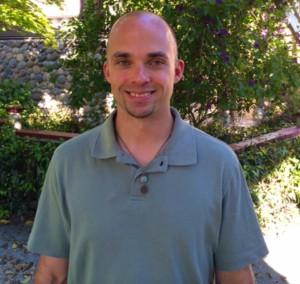 Founder Jonathan Beazley formed Bodhi Addiction out of one simple desire: to help everyone, no matter what the circumstances, with love and compassion. Jonathan started at age 15 to walk down the unhealthy path of addiction and to turn his life upside down. He found help through the support of his family and carved out a new path for himself in sobriety.
Founder Jonathan Beazley formed Bodhi Addiction out of one simple desire: to help everyone, no matter what the circumstances, with love and compassion. Jonathan started at age 15 to walk down the unhealthy path of addiction and to turn his life upside down. He found help through the support of his family and carved out a new path for himself in sobriety.
Jonathan began his career in the field of rehabilitation. He has since has helped and advised well over 30,000 individuals and families in finding their right path. Jonathan is a Registered Addiction Specialist Level 2 and a Certified Addiction Specialist. He is dedicated to helping people struggling with drugs and alcohol to achieve lasting sobriety, heal mind, body, and spirit, and reconnect with their purpose.
References
Khanna S, Greeson JM. “A narrative review of yoga and mindfulness as complementary therapies for addiction.” Complementary Therapies in Medicine. 21(3):244-52, 2013.
Lohman R. “Yoga techniques applicable within drug and alcohol rehabilitation programs.” Therapeutic Communities. 20(1): 61-71, 1999.
Bier ID, Wilson J, Studt P, Shakleton M. “Auricular acupuncture, education, and smoking cessation: a randomized, sham-controlled trial.” Am J Public Health. 2002 Oct;92(10):1642-7.
A Clinical Report of Holotropic Breathwork in 11,000 Psychiatric Inpatients in a Community Hospital Setting JAMES EYERMAN, MD
Avants SK. Margolin A. Holford TR. Kosten TR. “A randomized controlled trial of auricular acupuncture for cocaine dependence.” Archives of Internal Medicine. 160(15):2305-12, 2000.
Taub E, Steiner SS, Weingarten E, Walton KG. “Effectiveness of broad spectrum approaches to relapse prevention in severe alcoholism: a long-term, randomized, controlled trial of Transcendental Meditation, EMG biofeedback and electronic neurotherapy.” Alcoholism Treatment Quarterly. 11(1-2): 187-220, 1994.
Bakshi, JPS. (1990) Homoeopathy – A New Approach to Detoxification. Proceedings of the National Congress on Homoeopathy and Drug Abuse, p-20-28. New Delhi, India.
Wupperman P, Cohen MG, Haller DL, et al. Mindfulness and Modification Therapy for Behavioral Dysregulation: A Comparison Trial Focused on Substance Use and Aggression. J Clin Psychol. 2015 Oct; 71(10):964-78.
Long-Term Abstinence Following Holotropic Breathwork as Adjunctive Treatment of Substance Use Disorders and Related Psychiatric Comorbidity Timothy D. Brewerton & James E. Eyerman & Pamela Cappetta & Michael C. Mithoefer # Springer Science+Business Media, LLC 2011
Lee EB, An W, Levin ME, Twohig MP. An initial meta-analysis of Acceptance and Commitment Therapy for treating substance use disorders. Drug Alcohol Depend. 2015 Oct 1;155:1-7.
Li M, Chen K, Mo Z. “Use of qigong therapy in the detoxification of heroin addicts.” Alternative Therapies in Health and Medicine. 8(1): 50-59, 2002.
Smelson, D, Chen KW, Ziedonis D, et al. “A Pilot Study of Qigong for Reducing Cocaine Craving Early in Recovery.” The Journal of Alternative and Complementary Medicine. February 2013, 19(2): 97-101.
CCRH. (1994) Clinical evaluation of homeopathic medicines in the management of withdrawal symptoms of drug dependents. [online] Available at http://www.ccrhindia.org/abstracts/cr/drugdependents.htm.
Gerald Thomas, Philippe Lucas, N. Rielle Capler, Kenneth W. Tupper and Gina Martin. “Ayahuasca-Assisted Therapy for Addiction: Results from a Preliminary Observational Study in Canada.” Current Drug Abuse Reviews, 2013, 6, 000-000 1 1874-4737/13.
Metcalf, B. A. (1995). ‘Examining the Effects of Holotropic Breathwork in the Recovery from Alcoholism and Drug Dependence.’ Centre for Transpersonal Studies and developments.
Garcia-Swain S, (1993) A Double-Blind, Placebo-Controlled Trial Applying Homeopathy to Chemical Dependency. Hahnemann College of Homeopathy, Albany, California.
Lisa Jerome, Shira Schuster, and B. Berra Yazar-Klosinski. “Can MDMA Play a Role in the Treatment of Substance Abuse?” Current Drug Abuse Reviews, 2013, 6, 000-000 1 1874-4737/13.
Adrienne J. Heinz, B.A., Elizabeth R. Disney, Ph.D., David H. Epstein, Ph.D., Louise A. Glezen, M.S., Pamela I. Clark, Ph.D., and Kenzie L. Preston, Ph.D., A focus-group study on spirituality and substance-abuse treatment,
Substance Use Misuse. 2010; 45(1-2): 134–153
**Disclaimer**
The information presented in this article is for informational purposes only and does not constitute medical advice. It is not intended to be a substitute for professional medical advice, diagnosis, or treatment. Always seek the advice of a physician or other qualified health provider in regards to a medical condition.

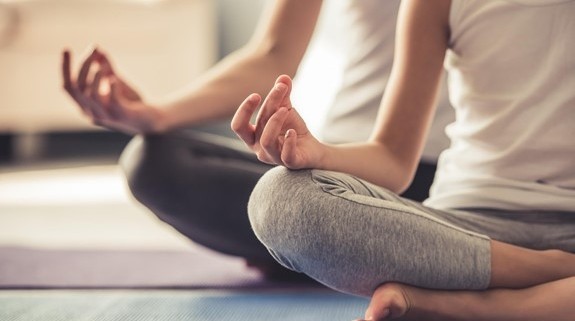









 Yoga is a more than 5,000-year-old practice and body of wisdom, originally from India. The word “yoga” comes from the Sanskrit word for “union,” referring to the unification of the individual consciousness or soul with Universal Consciousness or Spirit. Yoga seeks to harmonize the mind, body, and spirit through a combination of poses (asanas), breathing techniques, and meditation.
Yoga is a more than 5,000-year-old practice and body of wisdom, originally from India. The word “yoga” comes from the Sanskrit word for “union,” referring to the unification of the individual consciousness or soul with Universal Consciousness or Spirit. Yoga seeks to harmonize the mind, body, and spirit through a combination of poses (asanas), breathing techniques, and meditation. There is a large body of research supporting the benefits of meditation and mindfulness practice for addiction recovery, withdrawal, and relapse prevention.
There is a large body of research supporting the benefits of meditation and mindfulness practice for addiction recovery, withdrawal, and relapse prevention. Acupuncture is a key component of Oriental and Eastern Medicine developed in China over 2,500 years ago. The technique involves inserting thin needles into different key points on the body called meridians, to manipulate the flow of Qi (Chi) or Life Force Energy within the body for healing purposes. Practitioners believe that illness, pain and disease are caused by a disruption or blockage in this energy flow, which can be brought back into balance and proper flow through acupuncture. It is widely used for pain relief and a number of other conditions, and modern medicine is starting to formally recognize the efficacy of this ancient practice as an adjunct or alternative treatment.
Acupuncture is a key component of Oriental and Eastern Medicine developed in China over 2,500 years ago. The technique involves inserting thin needles into different key points on the body called meridians, to manipulate the flow of Qi (Chi) or Life Force Energy within the body for healing purposes. Practitioners believe that illness, pain and disease are caused by a disruption or blockage in this energy flow, which can be brought back into balance and proper flow through acupuncture. It is widely used for pain relief and a number of other conditions, and modern medicine is starting to formally recognize the efficacy of this ancient practice as an adjunct or alternative treatment. There are many different schools of thought in nutrition. Weston Price students swear by the health benefits of grass feed beef, bone marrow, ghee, raw dairy, and other animal fats. Vegans believe that avoiding any animal meat or products is most healthy. On the far end of the spectrum, Breatharians believe that you can live without any food and sometimes water and sustain life through harnessing the energy that surrounds us. Some diets may work well for some and not others. The best rule of thumb is to try different nutritional regimens and see what feels best for your body and best suits your specific health needs. With that said, there are some general guidelines for good nutrition that are fairly common.
There are many different schools of thought in nutrition. Weston Price students swear by the health benefits of grass feed beef, bone marrow, ghee, raw dairy, and other animal fats. Vegans believe that avoiding any animal meat or products is most healthy. On the far end of the spectrum, Breatharians believe that you can live without any food and sometimes water and sustain life through harnessing the energy that surrounds us. Some diets may work well for some and not others. The best rule of thumb is to try different nutritional regimens and see what feels best for your body and best suits your specific health needs. With that said, there are some general guidelines for good nutrition that are fairly common.
 Herbal Medicine, the practice of taking medicinal plants and herbs to treat diseases and illnesses and to promote health, has roots in all ancient cultures. Homeopathy is actually a distinct practice from herbal medicine, although the two terms are often used interchangeably and there is much overlap and has been around in its modern form for 230 years. The word Homeopathy is derived from Greek for “like disease,” meaning that that treatment given is similar to the disease the person is experiencing. Homeopathy is considered a holistic approach to alcoholism because it looks at a person in their totality, mind, body, and spirit, and medicines prescribed are meant to mirror the sickness of the person as a whole, not just a specific symptom or diagnosis. Homeopathy also operates on the principle of minimum dosing, and homeopathic remedies are prepared through repeated dilution and “succussion” or shaking to create the lowest effective dose.
Herbal Medicine, the practice of taking medicinal plants and herbs to treat diseases and illnesses and to promote health, has roots in all ancient cultures. Homeopathy is actually a distinct practice from herbal medicine, although the two terms are often used interchangeably and there is much overlap and has been around in its modern form for 230 years. The word Homeopathy is derived from Greek for “like disease,” meaning that that treatment given is similar to the disease the person is experiencing. Homeopathy is considered a holistic approach to alcoholism because it looks at a person in their totality, mind, body, and spirit, and medicines prescribed are meant to mirror the sickness of the person as a whole, not just a specific symptom or diagnosis. Homeopathy also operates on the principle of minimum dosing, and homeopathic remedies are prepared through repeated dilution and “succussion” or shaking to create the lowest effective dose.
 Recreation Therapy is another way of saying healing through having fun and enjoying activities and hobbies. Recreation gives us an opportunity to relieve stress and anxiety, achieve greater happiness and satisfaction, connect to nature, exercise and improve health, and develop community. We may even experience a natural high or euphoria from adrenaline-inducing activities, and a different kind of high from peaceful and meditative activities as well.
Recreation Therapy is another way of saying healing through having fun and enjoying activities and hobbies. Recreation gives us an opportunity to relieve stress and anxiety, achieve greater happiness and satisfaction, connect to nature, exercise and improve health, and develop community. We may even experience a natural high or euphoria from adrenaline-inducing activities, and a different kind of high from peaceful and meditative activities as well.
 Reiki is an energy healing treatment that works holistically; on the whole body, mind and spirit. Not a system of religious beliefs, Reiki is simply a relaxing treatment whereas natural healing vibrations are transmitted through the hands of a Reiki practitioner (acting as a conduit) to the body of the recipient. The purpose of a Reiki treatment is to relieve stress and pain, induce relaxation, release emotional blockages, accelerate natural healing, balance subtle bodies energies and support other medical modalities including traditional therapies. The International Center for Reiki Training has estimated that there are 4,000,000 people throughout the world who have taken at least one level of Reiki training. There are three traditional levels of expertise. Today, Reiki education is offered free of charge in more than 800 American Hospitals as a means to accelerate the healing process and alleviate pain.
Reiki is an energy healing treatment that works holistically; on the whole body, mind and spirit. Not a system of religious beliefs, Reiki is simply a relaxing treatment whereas natural healing vibrations are transmitted through the hands of a Reiki practitioner (acting as a conduit) to the body of the recipient. The purpose of a Reiki treatment is to relieve stress and pain, induce relaxation, release emotional blockages, accelerate natural healing, balance subtle bodies energies and support other medical modalities including traditional therapies. The International Center for Reiki Training has estimated that there are 4,000,000 people throughout the world who have taken at least one level of Reiki training. There are three traditional levels of expertise. Today, Reiki education is offered free of charge in more than 800 American Hospitals as a means to accelerate the healing process and alleviate pain. Qigong (also spelled Chi Kung or Chi Gung) is a system of healing, exercise, and meditation involving synchronized breathing and movement patterns and energy healing techniques. Practitioners believe that Qigong stretches the body, increases fluid movement (blood, synovial, and lymph), and cultivates Qi or Chi Energy, the vital Life Force Energy of the Universe. This Chi Energy is then directed by the mind to heal the self and others. It works with the system of meridians mapped out by acupuncture and is intended to restore proper flow to energy centers and channels in the body.
Qigong (also spelled Chi Kung or Chi Gung) is a system of healing, exercise, and meditation involving synchronized breathing and movement patterns and energy healing techniques. Practitioners believe that Qigong stretches the body, increases fluid movement (blood, synovial, and lymph), and cultivates Qi or Chi Energy, the vital Life Force Energy of the Universe. This Chi Energy is then directed by the mind to heal the self and others. It works with the system of meridians mapped out by acupuncture and is intended to restore proper flow to energy centers and channels in the body. One of Kung Fu’s philosophical principles may also be helpful for an addict on the path to recovery. Kung Fu, and other disciplines such as Tai Chi and Aikido, teach to “Surrender, Accept and Redirect.” When an opponent throws a strike at you, you don’t resist or try to fight back the energy of it. You don’t step in the way of the force coming toward you. Instead, you surrender to it, step out of the line of impact, absorb the energy that is coming toward you, and through the path of least resistance redirect that energy into something else, such as a reversal or takedown. The power of the negative energy coming toward you is proportional to the positive energy you can generate by transmuting the attack. Another way to look at that is that the severity of the addiction is proportional to the potential for healing. I see this framework as exceptionally relevant to recovery. It even reminds me of the Serenity Prayer from Alcoholics Anonymous:
One of Kung Fu’s philosophical principles may also be helpful for an addict on the path to recovery. Kung Fu, and other disciplines such as Tai Chi and Aikido, teach to “Surrender, Accept and Redirect.” When an opponent throws a strike at you, you don’t resist or try to fight back the energy of it. You don’t step in the way of the force coming toward you. Instead, you surrender to it, step out of the line of impact, absorb the energy that is coming toward you, and through the path of least resistance redirect that energy into something else, such as a reversal or takedown. The power of the negative energy coming toward you is proportional to the positive energy you can generate by transmuting the attack. Another way to look at that is that the severity of the addiction is proportional to the potential for healing. I see this framework as exceptionally relevant to recovery. It even reminds me of the Serenity Prayer from Alcoholics Anonymous: Breathwork is an umbrella term referring to a wide range of different disciplines and traditions which utilize rhythmic breathing patterns and meditation to achieve higher states of consciousness, detoxification, self-exploration, and healing. There are many different forms of breathwork including Holotropic, Pranayama, and the Wim Hof Method. and it is a foundational component of traditions like Kundalini Yoga, Tantra, Tai Chi, Qigong, and other Eastern spiritual practices and mystical traditions.
Breathwork is an umbrella term referring to a wide range of different disciplines and traditions which utilize rhythmic breathing patterns and meditation to achieve higher states of consciousness, detoxification, self-exploration, and healing. There are many different forms of breathwork including Holotropic, Pranayama, and the Wim Hof Method. and it is a foundational component of traditions like Kundalini Yoga, Tantra, Tai Chi, Qigong, and other Eastern spiritual practices and mystical traditions.


 Fundamental frequencies, harmonics, rhythms, and sounds transcend ego identification.
Fundamental frequencies, harmonics, rhythms, and sounds transcend ego identification.



 The use of psychedelic or entheogenic plant medicines for addiction recovery is a controversial subject in the recovery community but is one that is gaining a lot of attention and notoriety recently and warrants further exploration as a legitimate addiction recovery treatment. The author does not recommend for or against the use of these medicines but encourages the reader to do additional research and see if it resonates for them.
The use of psychedelic or entheogenic plant medicines for addiction recovery is a controversial subject in the recovery community but is one that is gaining a lot of attention and notoriety recently and warrants further exploration as a legitimate addiction recovery treatment. The author does not recommend for or against the use of these medicines but encourages the reader to do additional research and see if it resonates for them. Spiritual practice and a sense of being connected to a higher power and purpose can be important factors to addiction recovery.
Spiritual practice and a sense of being connected to a higher power and purpose can be important factors to addiction recovery. Adam Douglas Heyes, M.A. is a multidisciplinary holistic practitioner, spiritual counselor, sound and energy healer, ceremonial musician and singer, a teacher of Chi Kung and Tai Chi, and a black belt in Shaolin and Wutang Kung Fu. Adam graduated Summa Cum Laude and Phi Beta Kappa with a Bachelor’s degree in Psychology from UCLA and holds a Master’s Degree in Spiritual Psychology from the University of Santa Monica. Adam is a student of many healing modalities, spiritual lineages, and shamanic traditions, and has helped countless people worldwide to achieve healing of mind, body, and spirit and live healthier, more fulfilling lives.
Adam Douglas Heyes, M.A. is a multidisciplinary holistic practitioner, spiritual counselor, sound and energy healer, ceremonial musician and singer, a teacher of Chi Kung and Tai Chi, and a black belt in Shaolin and Wutang Kung Fu. Adam graduated Summa Cum Laude and Phi Beta Kappa with a Bachelor’s degree in Psychology from UCLA and holds a Master’s Degree in Spiritual Psychology from the University of Santa Monica. Adam is a student of many healing modalities, spiritual lineages, and shamanic traditions, and has helped countless people worldwide to achieve healing of mind, body, and spirit and live healthier, more fulfilling lives. Founder Jonathan Beazley formed Bodhi Addiction out of one simple desire: to help everyone, no matter what the circumstances, with love and compassion. Jonathan started at age 15 to walk down the unhealthy path of addiction and to turn his life upside down. He found help through the support of his family and carved out a new path for himself in sobriety.
Founder Jonathan Beazley formed Bodhi Addiction out of one simple desire: to help everyone, no matter what the circumstances, with love and compassion. Jonathan started at age 15 to walk down the unhealthy path of addiction and to turn his life upside down. He found help through the support of his family and carved out a new path for himself in sobriety.